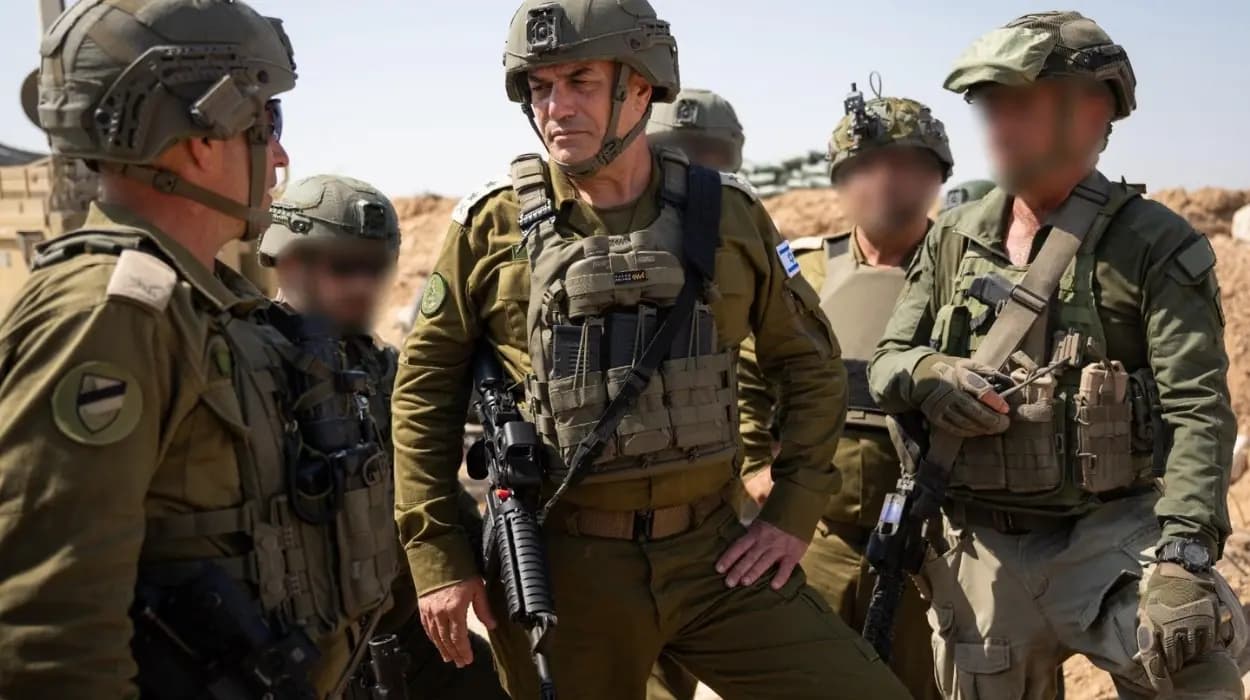The Israel Defence Forces (IDF) have issued warnings to
Prime Minister Benjamin Netanyahu regarding the risks of a full-scale invasion
of Gaza following intensified airstrikes that have resulted in the deaths of
dozens of Palestinians. The situation remains volatile, with conflicting
pressures from military officials and political leadership against the backdrop
of escalating humanitarian concerns.
IDF Issues Caution to Netanyahu
As reported by Tom Wright of The Guardian, senior officers
within the IOF (Isreali Occupation Force) have expressed serious reservations about Prime Minister Benjamin Netanyahu’s proposal to launch a full ground invasion into Gaza.
According to Wright, the military chiefs warn that while airstrikes have
inflicted significant damage on militant infrastructure, an open invasion
carries substantial risks including possible high casualties and prolonged
urban warfare.
Military sources cited by the Reuters correspondent Shira
Rubin reveal that the IDF leadership is urging more measured military options,
stressing concerns about the complexity of urban combat in the densely
populated Gaza Strip. Rubin reports that these officers fear the potential for
severe losses among Israeli troops and the broad international backlash such an
operation might generate.
Intensified Airstrikes Result in Dozens of Deaths
The escalation of violence has been marked by a wave of
airstrikes targeting sites across Gaza. According to Ahmed Alaa of Al Jazeera,
these strikes have killed dozens of civilians and combatants alike. Alaa notes
that several residential buildings, suspected militant hideouts, and smuggling
tunnels were among the primary targets during the recent bombardments.
Palestinian medical officials quoted by Alaa confirm that the death toll
includes women and children, highlighting the humanitarian toll of the
operation.
John Reed of The Financial Times documents the international
response to these attacks, citing widespread condemnation from human rights
groups and calls from the United Nations for an immediate halt to airstrikes to
avoid further civilian casualties. Reed reports that diplomatic efforts in New
York and Brussels are underway to push for a ceasefire, though the prospects
remain uncertain.
Netanyahu Faces Political Pressure Amid Military Warnings
Political analysis by Rachel Cohen of Haaretz outlines the
political pressures faced by Netanyahu as he weighs military and political
strategies. Cohen reports that factions within Netanyahu’s Likud party are
divided, with hardliners advocating for aggressive military action to dismantle
Hamas’ capabilities entirely, while moderates urge caution to prevent Gaza from
becoming a prolonged conflict zone.
According to Cohen, Netanyahu’s government is also grappling with public opinion both within Israel and internationally, where there is increasing discomfort regarding the humanitarian impact of airstrikes. Cohen quotes a government official telling Haaretz that
“Netanyahu is caught between a rock and a hard place, balancing military necessities and diplomatic repercussions.”
International Community Reacts to Gaza Crisis
The BBC’s Ian Black provides insight into the international
diplomatic landscape surrounding the Gaza situation. Black reports that key
players, including the United States, the European Union, and Arab League
states, have issued statements urging restraint. The US Secretary of State is
reported to have communicated directly with Netanyahu, advocating for
de-escalation and expressing concern over civilian deaths.
Meanwhile, the United Nations Human Rights Council convened
an emergency session, as noted by Maria Sanchez from The Associated Press.
Sanchez highlights the calls for immediate humanitarian access to Gaza and
condemnation of actions potentially violating international law. The UN High
Commissioner for Human Rights has urged both sides to adhere to principles of
proportionality and distinction in the conduct of hostilities.
Gaza Humanitarian Situation Deteriorates Further
In a moving report for Reuters, Hanan Ashrawi details the
worsening humanitarian conditions in Gaza resulting from the intense
airstrikes. Ashrawi writes that power outages, lack of medical supplies, and
the displacement of thousands of civilians have exacerbated the crisis.
Hospitals are reportedly overwhelmed, and access to clean water remains
disrupted.
Palestinian Authority officials quoted by Ashrawi call for
renewed international relief efforts, emphasising the urgent need for aid
corridors. The escalating violence has also displaced hundreds of families,
according to Ashrawi’s interviews with local aid workers.
Security Concerns and Regional Implications
As outlined by David Horovitz of The Times of Israel, the
security concerns extend beyond Gaza’s borders. Horovitz writes that Israeli
security analysts warn of potential repercussions in the West Bank and the
wider region, where sympathizers of Hamas may carry out retaliatory attacks.
He further notes that Iran’s stated support for Hamas raises
the stakes in the region, with fears of a broader proxy conflict. Horovitz
quotes officials describing the situation as “a powder keg” that could ignite
if large-scale operations proceed without robust diplomatic engagement.
The evolving situation in Gaza continues to place Israeli
Prime Minister Benjamin Netanyahu under intense scrutiny from military
officials and political factions alike. With the IDF urging caution and the
death toll rising due to relentless airstrikes, the path forward remains
complex and fraught with risks.
International calls for restraint and humanitarian considerations add further layers of complexity, while the regional security implications underscore the necessity for a careful and measured approach. As reported by multiple correspondents including Tom Wright, Shira Rubin, Ahmed Alaa, Rachel Cohen, Ian Black, and others, the world watches closely as decisions made in the coming days will likely shape the trajectory of this deeply entrenched conflict.
